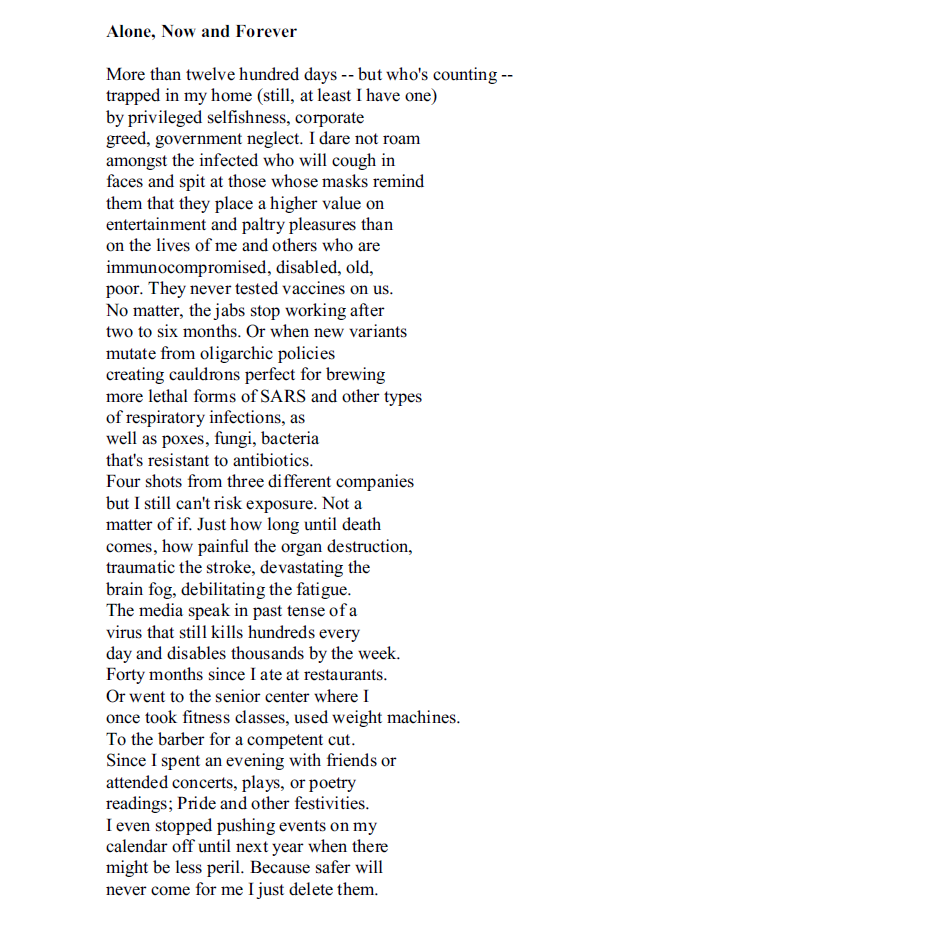Written Story by Grace
A Bunch of Thoughts
As I write I am realizing how hard I have tried to unconsciously forget any of those two years ever happened. Everything is back to normal and everyone is just trying to forget. I know I am. Except giving birth, I cannot recall a single event that happened, all the two years just morphed into this thing of bits and fragments of memories, I like to call it a bunch of thoughts, and a few that often stick in my mind I’ll try to write about.
They always say whatever doesn’t kill you makes you stronger. I have grown to believe ever since Covid-19 was at its peak that that saying doesn’t actually hold any water. Because you can’t convince me the reason me and my loved ones are alive is because we were strong. I holed up in the house as the strongest; doctors, nurses and first responders sacrificed their lives for us. I have failed to see the strength in my actions, that’s why I never got the power to complain or second guess them when they advised against taking walks when I had a three-month-old baby. Because I knew what I’d done wasn’t a show of strength, it was resilience and best. But we all pushed through, I learnt that a day at a time is how you survive when the very things you love and cherish like your life and family are threatened by something you have no control over. You just hope like everything you have endured before; it will come to pass. The promise of time which is never broken.
When my job stopped and I was stuck at home pregnant, it was time I found something else to fill my time. I was raised in a middle to low-income family in Rwanda and fantasies and movies were not how food got to the table. Then here I was with an eternity to do anything but work. I signed up for Netflix for the very first time in my life and this is where another unforgettable memory from those two years came to my life. Through my screen I found art, these stories allowed me to forget my reality and fight batters for causes close to my heart. They allowed me to dream of a life I hadn’t imagined for me and my daughter. For although these stories were fiction, their effect on my life was true. They made me dream of a world of plenty, where I could work and provide the life I had never had for my daughter, I was determined to come to the USA.
Even after the pandemic has passed and everything is back to normal, I don’t think anyone is back to normal and that necessarily isn’t a bad thing. The pandemic was a reminder that as humans, at our best the strongest and smartest have sacrificed their energy and time, sometimes even life so that the frail and weak and vulnerable among us can live to see another day and fulfill their dreams with prejudice. That the world is sometimes kind enough to give the “undeserving” the most chances in life. I hope I learned a thing or two about living, because like everything I described as art in movies, life is beautiful.
For all its downsides I got a thing or two from covid. The love of my life, my daughter. She is a light in my life of how from fire diamonds are forged, for her I will forever be grateful. The second thing was time, as I took a break, I noticed how time is also a privilege for the few. I worked long hours prior and never got time to reflect about my life, what was important to me, what my loved ones were going through. I spent the 2 years with three of my siblings I hadn’t had time to understand since I was the oldest and time hadn’t been kind enough to give me a chance watch them grow into themselves, I am thankful I no longer share only blood with them, we share a friendship strengthened by blood and for that I will forever be grateful.
